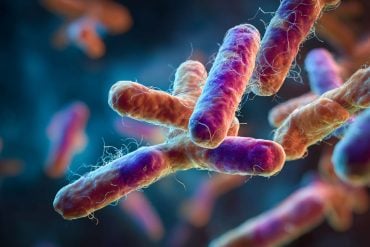Summary: New research reveals a stress-sensitive neural pathway that impairs both sleep and memory in male mice. Scientists activated neurons in the paraventricular nucleus (PVN) of the hypothalamus, known for their role in stress response, which caused sleep loss and poor memory performance.
Conversely, inhibiting these neurons in stressed mice reduced memory issues and slightly improved sleep quality. The pathway between the PVN and lateral hypothalamus appears central to stress-related cognitive and sleep disruptions, offering a target for future interventions.
Key Facts:
- PVN Activation: Stimulating stress-related PVN neurons caused sleep loss and memory problems in mice.
- Neural Pathway Identified: The PVN-lateral hypothalamus connection mediates stress effects on cognition and sleep.
- Potential Target: Inhibiting the pathway improved memory and sleep in stressed male mice, suggesting a possible therapeutic route.
Source: SfN
Stress worsens sleep quality and can impair memory.
Shinjae Chung, from the University of Pennsylvania, led a study to explore a neural pathway in male mice that stress may influence to cause sleep and memory disturbances.

In their Journal of Neuroscience paper, the researchers artificially activated neurons in the paraventricular nucleus of the hypothalamus (PVN) that were previously linked to stress. This experimental manipulation made mice sleep less and impaired how well mice performed in a memory task.
Notably, when mice were stressed, artificially inhibiting these PVN neurons reduced stress-related memory issues while slightly improving sleep.
Further probing what neural pathway may be involved, Chung and colleagues discovered that stress and artificial activation of the PVN neurons separately targeted another brain region called the lateral hypothalamus (LH).
Bridging their findings together, the researchers found that this neural pathway from the PVN to the LH may be involved in stress-related memory impairment and sleep disruptions.
According to the researchers, this neural pathway may inform future work exploring ways to improve sleep and cognitive deficits associated with stress-related disorders, at least in males.
About this sleep, memory, and stress research news
Author: SfN Media
Source: SfN
Contact: SfN Media – SfN
Image: The image is credited to Neuroscience News
Original Research: Closed access.
“Role of Hypothalamic CRH Neurons in Regulating the Impact of Stress on Memory and Sleep” by Shinjae Chung et al. Journal of Neuroscience
Abstract
Role of Hypothalamic CRH Neurons in Regulating the Impact of Stress on Memory and Sleep
Stress profoundly affects sleep and memory processes. Stress impairs memory consolidation, and similarly, disruptions in sleep compromise memory functions.
Yet, the neural circuits underlying stress-induced sleep and memory disturbances are still not fully understood.
Here, we show that activation of corticotropin-releasing hormone neurons in the paraventricular nucleus of the hypothalamus (CRHPVN), similar to acute restraint stress, decreases sleep and impairs memory in a spatial object recognition task in male mice.
Conversely, inhibiting CRHPVN neurons during stress reduces stress-induced memory deficits while slightly increasing the amount of sleep.
We found that both stress and stimulation of CRHPVN neurons activate neurons in the lateral hypothalamus (LH), and that CRHPVN projections to the LH regulate stress-induced memory deficits and sleep disruptions.
Our results suggest that CRHPVN neuronal pathways regulate the adverse effects of stress on memory and sleep – an important step toward improving sleep and ameliorating cognitive deficits associated with stress-related disorders.






